Not In Our Town toured through the Detroit area screening the film "Waking in Oak Creek" and meeting with local anti-intolerance organizations, law enforcement, and educational institutions to talk about community empowerment.
hate crimes
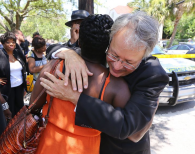
Not In Our Town traveled to Charleston, South Carolina to document stories from the community in the days after the horrific hate crime attack that took the lives of nine members of the Emanuel African Methodist Episcopal Church on June 17, 2015. This short video is designed to prompt reflection and discussion for community and faith groups about how we can take local action in response to hate.
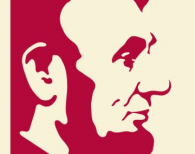
By Paul R. Tetreault Director, Ford’s Theatre
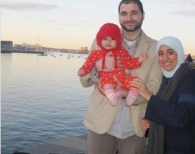
Call for compassion after Boston Marathon bombings
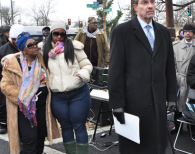
Vassar students stand up to hate group
Students at Vassar College have raised more than $84,000 for The Trevor Project, which provides crisis intervention and suicide prevention services to LGBT youth, in response to a visit from a hate group.
According to college newspaper The Miscellany News, students started to organize their counterprotest immediately after hearing that the Westboro Baptist Church were planning to picket the college on Feb. 28. The fundraiser was intended to raise $4,500, $100 for every minute the hate group intended to picket the college. Instead, they raised twice that amount in under twelve hours.
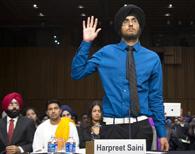
Harpreet Singh Saini is sworn in before testifying. Photo Credit: AP
“I want to tell the gunman who took her from me: You may have been full of hate, but my mother was full of love,” said Harpreet Singh Saini, who lost his mother in the tragic hate crime killings at a Sikh gurdwara in Oak Creek Wisconsin on Aug. 5.
This is a background piece on the meaning of a "hate crime" in the five-part series published by our public media partners at Fronteras.
Defining Hate Crimes
By Jude Joffe-Block
PHOENIX — This week we launch our five-part Fronteras Desk series, The Search For Tolerance. Five reporters in five cities checked on the ways that communities are trying to prevent hate crimes. The stories air on several public radio stations in the Southwest this week.
But as communities work to prevent hate, a question often arises when some form of harassment or discrimination does occur: Was that a hate crime?
During the last few decades, the vast majority of states have added hate crime laws to their books. These statutes allow longer criminal sentences if there is evidence that a crime was motivated by bias.
At a recent town meeting in the Phoenix suburb of Gilbert, concerned residents and the police chief entered into a dialogue about the legal definition of a hate crime.

D.C. Chief of Police Cathy Lanier discusses the formation of the new task force during
an interview with the Washington Blade. Photo: Strother Gaines/Washington Blade
Washington, D.C. leaders are ramping up efforts to improve hate crime investigations.
Last month, the district mayor and police chief launched a task force that will evaluate how the Metropolitan Police Department investigates and reports hate crimes, particularly those targeting the LGBT community. The task force aims to identify and strengthen investigation weaknesses and build better police-community relations.
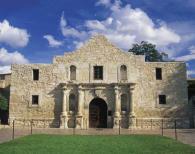
This is the fifth and final piece of a five-part series published by our public media partneras at Fronteras. Listen to the accompanying radio piece.
By Adrian Florido
Hate Crimes in the Alamo City
SAN ANTONIO, Texas — San Antonio is known as a Mexican-American city. Yet it’s also home to a small but vibrant South Asian community, including Muslims and Sikh religious followers.

Tune into this original Not In Our Town programming from our public media partners at Fronteras.
We asked you this question in October 2011: Does your community make you feel safe and included, or scared and marginalized?
The Fronteras: Changing America Desk has joined forces with Not in Our Town documentary producers to determine how hate affects communities throughout the Southwest and what people like you are doing about it.
Tune in to hear these stories on KJZZ at 6:30 and 8:30 a.m. during Morning Edition